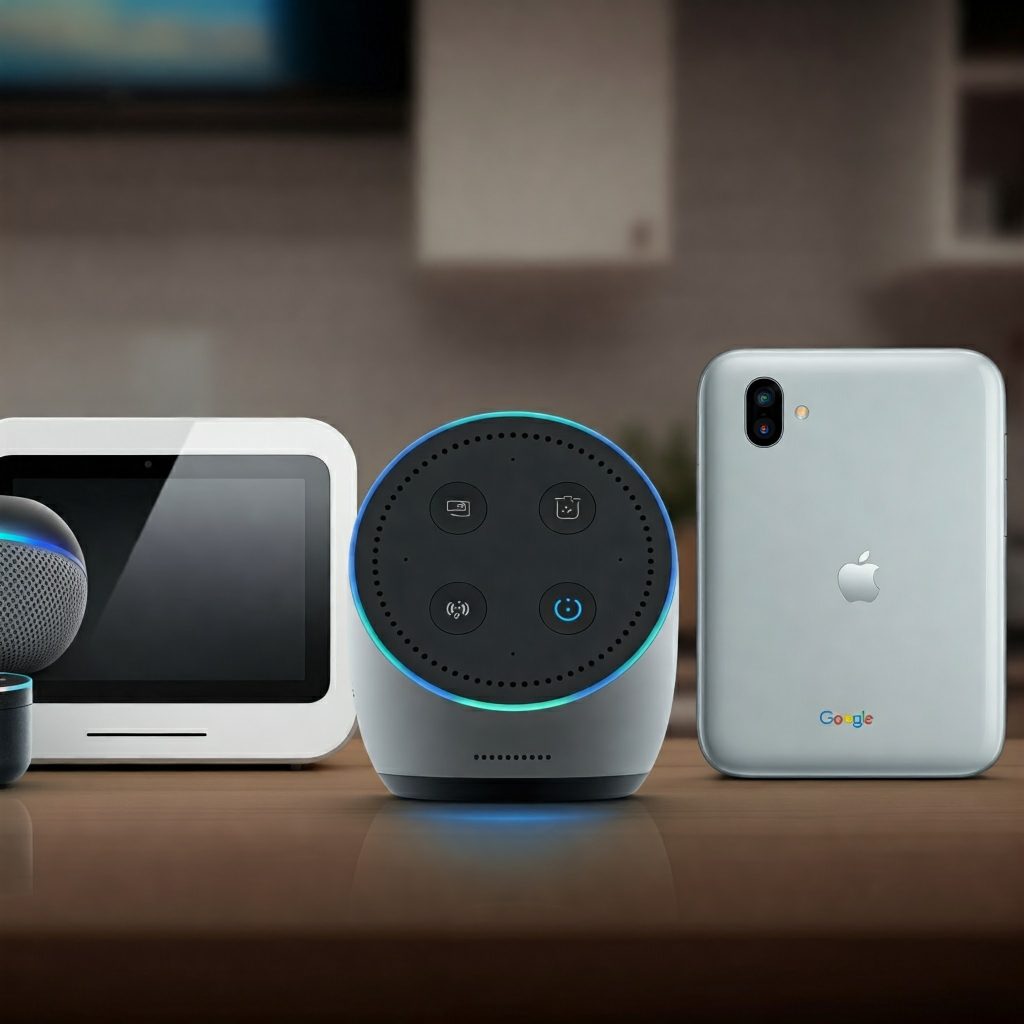Voice assistants have become an integral part of the smart home experience, offering a convenient and hands-free way to control various devices and systems. With several popular options available, such as Amazon Alexa, Google Assistant, and Apple Siri, choosing the right voice assistant for your smart home can be a daunting task. In this article, we will explore the key factors to consider when making your decision, helping you find the perfect voice assistant to complement your lifestyle and smart home ecosystem.
Compatibility and Integration
- Smart Home Devices: Ensure the voice assistant you choose is compatible with the smart home devices you own or plan to purchase. Check for compatibility with popular brands and platforms like Philips Hue, Nest, Samsung SmartThings, and others.
- Ecosystem Integration: Consider how well the voice assistant integrates with your existing smart home ecosystem. If you already use a specific platform like Amazon Echo or Google Home, choosing the corresponding voice assistant may offer a more seamless experience.
- Third-Party Apps and Services: Explore the range of third-party apps and services that integrate with each voice assistant. This can expand the functionality and capabilities of your smart home.
Features and Capabilities
- Voice Recognition and Natural Language Processing: Assess the accuracy and responsiveness of each voice assistant’s voice recognition and natural language processing capabilities. A voice assistant that understands your commands clearly and responds quickly will provide a more enjoyable user experience.
- Music and Entertainment: If you enjoy listening to music or podcasts, consider the voice assistant’s music streaming and entertainment capabilities. Some assistants offer integration with popular music services and can even provide personalized recommendations.
- Information and Knowledge: Voice assistants can be a valuable source of information, providing answers to questions, weather updates, news headlines, and more. Consider the breadth and depth of each assistant’s knowledge base and its ability to provide relevant and accurate information.

User Experience and Personalization
- Ease of Use: Choose a voice assistant that is easy to set up, configure, and use. Look for intuitive interfaces and clear instructions.
- Customization: Consider whether the voice assistant allows for personalization, such as custom wake words, voices, and routines.
- Privacy and Security: Review the privacy policies and data collection practices of each voice assistant. Choose one that prioritizes data protection and offers transparent control over your personal information.
Price and Availability
- Cost: Voice assistants are typically available at no additional cost when you purchase a compatible smart speaker or display. However, some premium features or subscriptions may require additional fees.
- Availability: Consider the availability of each voice assistant in your region and the languages it supports.
Conclusion:
Choosing the right voice assistant for your smart home is a personal decision that depends on your individual needs, preferences, and existing smart home ecosystem. By carefully considering factors like compatibility, features, user experience, and price, you can find the perfect voice assistant to enhance your smart home and simplify your life.
Call to Action:
- Explore the different voice assistants available in the market and compare their features and capabilities.
- Consider your smart home ecosystem and choose a voice assistant that integrates seamlessly with your existing devices.
- Start using voice commands to control your smart home and experience the convenience and efficiency it offers.
